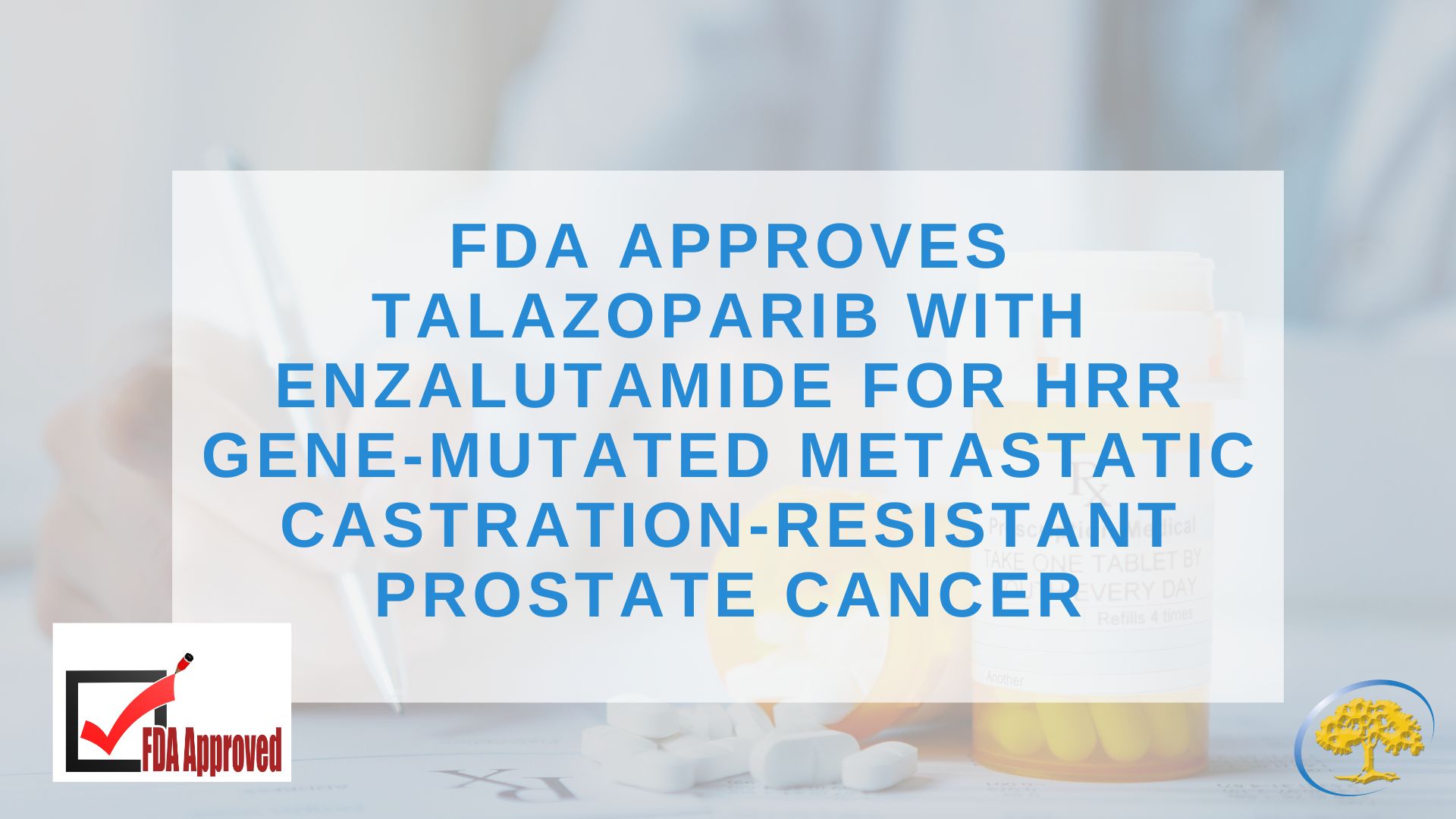
Posted 2 years ago
FDA approves talazoparib with enzalutamide for HRR gene-mutated metastatic castration-resistant prostate cancer.
Ironwood Cancer & Research Centers are committed to the advancement of medical knowledge and patient care. Medical research has and continues to transform the practice of medicine resulting in a high quality of care we enjoy today. We believe that by supporting clinical research today, we are helping build the future of medicine and the profound developments that are sure to come. We have an active and expanding clinical research program.
Our physicians recently took part in the study of talazoparib (Talzenna, Pfizer, Inc.) with enzalutamide for homologous recombination repair (HRR) gene-mutated metastatic castration-resistant prostate cancer (mCRPC). We are excitied to announce that on June 20, 2023, the Food and Drug Administration approved this medication for the treatment of prostate cancer. You can read the official press release here.
- TALZENNA is first and only PARP inhibitor approved for use with an existing standard of care (XTANDI) for adult patients with homologous recombination repair (HRR) gene-mutated metastatic castration resistant prostate cancer (mCRPC)
Efficacy was evaluated in TALAPRO-2 (NCT03395197), a randomized, double-blind, placebo-controlled, multi-cohort trial enrolling 399 patients with HRR gene-mutated mCRPC. Patients were randomized (1:1) to receive enzalutamide 160 mg daily plus either talazoparib 0.5 mg or placebo daily. Patients were required to have a prior orchiectomy and, if not performed, received gonadotropin-releasing hormone (GnRH) analogs. Patients with prior systemic therapy for mCRPC were excluded; however, prior CYP17 inhibitors or docetaxel for metastatic castration-sensitive prostate cancer (mCSPC) was permitted. Randomization was stratified by previous treatment with a CYP17 inhibitor or docetaxel. HRR genes (ATM, ATR, BRCA1, BRCA2, CDK12, CHEK2, FANCA, MLH1, MRE11A, NBN, PALB2, or RAD51C) were assessed prospectively using tumor tissue and/or circulating tumor DNA (ctDNA)-based next generation sequencing assays.
The major efficacy outcome measure was radiographic progression-free survival (rPFS) per RECIST version 1.1 for soft tissue and Prostate Cancer Working Group 3 criteria for bone, assessed by blinded independent central review.
A statistically significant improvement in rPFS for talazoparib with enzalutamide compared to placebo with enzalutamide was observed in the HRR gene-mutated population with a median that was not reached vs 13.8 months (HR 0.45; 95% CI: 0.33, 0.61; p<0.0001). In an exploratory analysis by BRCA mutation status, the hazard ratio for rPFS in patients with BRCA-mutated mCRPC (n=155) was 0.20 (95% CI: 0.11, 0.36) and, in patients with non-BRCAm HRR gene-mutated mCRPC, was 0.72 (0.49, 1.07).
The most common adverse reactions (≥10%), including laboratory abnormalities, were decreased hemoglobin, decreased neutrophils, decreased lymphocytes, fatigue, decreased platelets, decreased calcium, nausea, decreased appetite, decreased sodium, decreased phosphate, fractures, decreased magnesium, dizziness, increased bilirubin, decreased potassium, and dysgeusia. Among all patients with mCRPC treated with talazoparib with enzalutamide on TALAPRO-2 (n=511), 39% required a blood transfusion, including 22% who required multiple transfusions, and 2 patients were diagnosed with myelodysplastic syndrome/acute myeloid leukemia (MDS/AML).
The recommended talazoparib dose is 0.5 mg taken orally once daily in combination with enzalutamide until disease progression or unacceptable toxicity. The recommended enzalutamide dose is 160 mg taken orally once daily. Patients receiving talazoparib and enzalutamide should also receive a GnRH analog concurrently or should have had bilateral orchiectomy.
